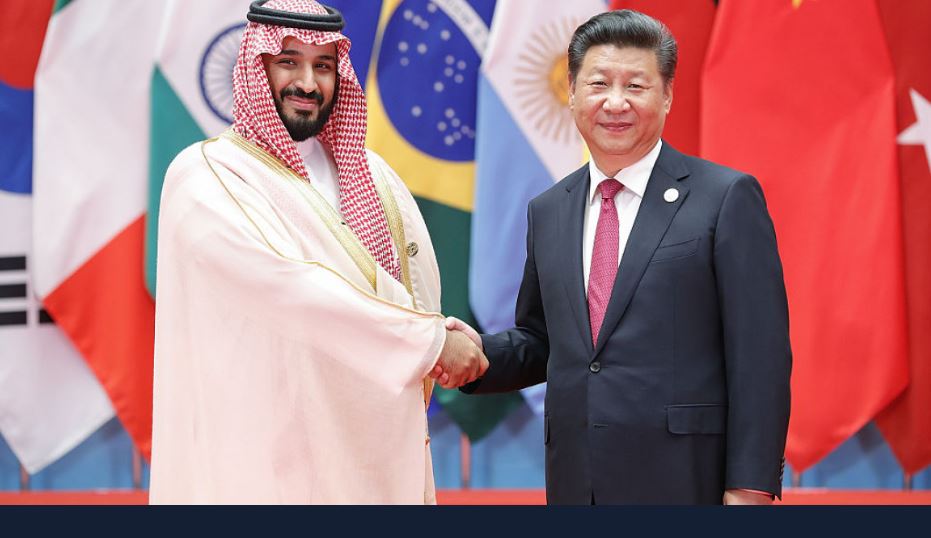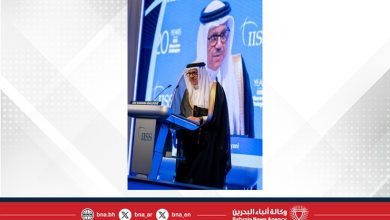China-Arab Summit: Xi ’s Visit to Saudi Kingdom to Bolster Multilateral Ties
China, Saudi Arabia Cooperation Vital for Prosperous Asia

- #Chinese President Xi Jinping to Attend Chinese-Arab summit in December
- Chinese-Arab Summit to Bring Oil-Rich Saudi kingdom, and China, World’s No. 2 Economy, Together
- Chinese-Arab Summit: Xi ’s Visit to Saudi Kingdom to Bolster Multilateral Ties
- China, Saudi Arabia Cooperation Vital for Prosperous Asia
Dubai: The oil-rich Saudi kingdom will host the first-ever Chinese-Arab summit in December, 2022, to bolster multilateral ties with China, world’s No. 2 economy, says a media report quoting Chinese Consul based in Dubai, UAE.

The leader of the world’s most populous nation, President Xi Jinping is also likely to visit Saudi Arabia that same month, according to yadh’s foreign minister.
“The first China-Arab Summit will be held in Saudi Arabia in early December,” Li Xuhang, China’s Consul-General in Dubai was quoted as saying in a statement posted on the consulate’s website Tuesday. It did not provide an exact date for the talks or name who will attend.
Earlier, kingdom’s Foreign Minister, Prince Faisal bin Farhan, while taking to Saudi TV outlet Al Ekhbariya, stated “the expected visit of the Chinese president Xi Jinping to the Saudi kingdom is being viewed with great interest, and we are working to finalise all arrangements for it, for its success,”.
Diplomatic affairs’ experts believe the Xi’s visit comes as Riyadh and other Gulf countries foster links with Asian markets amid strained ties between Saudi Arabia and long-standing ally the United States after the OPEC+ cartel slashed oil production, ignoring pleas from Washington.
The US blasted the decision to cut output as being akin to “aligning with Russia” in its war on Ukraine, and warned of unspecified “consequences”. The next OPEC+ meeting will be held on December 4, which will likely put global disputes over energy supplies back in the spotlight.
“Li Xuhang pointed out that the relations between China and Arab countries, including the United Arab Emirates, have entered a fast track of development,” said the consulate statement. It called the summit talks a “milestone in the history of China-Arab relations”.
Moreover, Saudi crown prince Muhammad bin Salman embarked on a multi-stop Asian tour that included G20 Summit in Indonesia, meetings in South Korea and APEC Summit in Thailand.
Data show, for the past decade, Asia has been the top export market for Saudi crude, particularly China, Japan, South Korea and India.
Mr. Xi’s last visit to Saudi Arabia was in 2016. In 2019, Saudi Crown Prince Mohammed bin Salman visited Beijing and hailed diplomatic relations with China.
Strengthening trade ties and regional security will be priorities in an upcoming visit by Chinese leader Xi Jinping to Saudi Arabia, Saudi minister of state for foreign affairs Adel Al-Jubeir on Nov,2022, while attending the COP27 in Egypt.
Chin-Saudi Arabia Trade Ties
On the front of bilateral ties, China is Saudi Arabia’s largest trading partner while Saudi Arabia, the world’s top oil exporter, has huge investments in China.
Trade binds the two countries. Saudi Arabia’s exports to China, in the second quarter of 2022, amounted to SR63 billion (about $16.8 billion), which makes China the main destination for Saudi goods, according to reports of the Saudi Press Agency.
Saudi Investment in BRI
According to official sources, the Kingdom is the largest partner for Chinese investments within the Belt and Road Initiative(BRI) during the first half of 2022, with investments amounting to SR20.6 billion ($5.5 billion), or approximately SR3.5 billion (about $1 billion) per month.
Trade in Yuan
News reports also indicate that #China and Saudi Arabia have held talks to settle oil deals in yuan, a topic the two nations have discussed for six years. Opening trade in Chinese #Yuan will would undercut the dollar, which has long been the default currency for pricing energy contracts around the world.
On several occasions, both the leadership from #Beijing and Riyadh have vowed on deepening bilateral ties, and want “high-level” cooperation on energy, trade and high-tech industries.
By: Dr.Muhammad Arif





